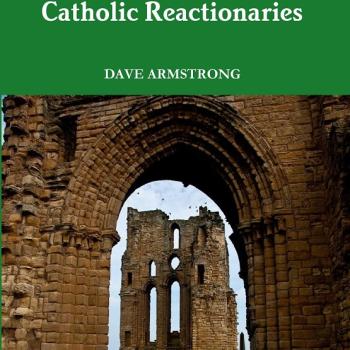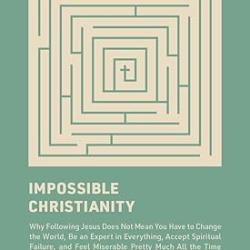
What does Ezekiel 11:19-21 Mean?
“And I will give them one heart, and a new spirit I will put within them. I will remove the heart of stone from their flesh and give them a heart of flesh, that they may walk in my statutes and keep my rules and obey them. And they shall be my people, and I will be their God. But as for those whose heart goes after their detestable things and their abominations, I will bring their deeds upon their own heads, declares the Lord GOD”
Buddhist Perspective:
In Buddhism, the concept of spiritual transformation aligns with the idea of enlightenment and inner growth. The change of heart described in Ezekiel 11:19-21 would, in many ways, resonate with the Buddhist journey towards “awakening”--which involves shedding attachment and ignorance (or false beliefs) in favor of compassion and wisdom. The notion of a "heart of flesh" (which does not fight against God) parallels not only the Buddhist belief in the need to cultivate empathy and understanding, but also the notion of non-attachment. Following decrees and keeping laws (or “commandments”) well corresponds with Buddhist principle of living in accordance with the “Eightfold Middle Path” and other Buddhist precepts.
Contemporary Christian Perspective:
Within Christianity, Ezekiel 11:19-21 speaks to the promise of a profound transformation brought about by God's grace. The undivided “heart" implied by Ezekiel’s words) is connected to the Christian belief in the need for a deepening relationship with God, marked by genuine devotion and faith. This transformation, symbolized by a “new spirit” and a “heart of flesh,” echoes the Christian concept of being born again through the Holy Spirit. The commitment to follow decrees and keep laws (or “commandments”) aligns perfectly with the emphasis on moral living, as found in the teachings of Jesus Christ.
Early Christian Perspective:
Saint Augustine (AD 354-430) had some strong feelings about this specific passage. His view is representative of how some of the earliest Chrsitians might have read this verse. According to Augustine, the words of Ezekiel testify to God’s grace, because the ancient prophet said that it was God who softens our hearts, and takes away our attitudes of stone. Augustine pointed out that Christians would not “pray for those” who refused to “believe” if they did not believe that it was God who softentens the hearts of those “opposed to faith.” He rhetorically asked, “Now can we possibly maintain that there ever existed in any man a good will sufficient to the removal of his stony heart, when this very heart of stone signifies a will absolutely inflexible against God? For where a good will precedes, there is, of course, no longer a heart of stone.” Thus, it is God–and not man–who changes our hearts from stony (or “hard”) to fleshing (or “believing”), in the view of Saint Augustine.
Hindu Perspective:
From a Hindu perspective, Ezekiel 11:19-21 can be seen through the lens of spiritual evolution and the concept of shedding karma (or that negative accountability that comes to us when we do not live our dharma). The promise of a new heart and spirit resonates with the Hindu belief in the cycle of reincarnation, where each life presents an opportunity for growth and transformation. Each life is an opportunity to move closer to getting off the wheel of reincarnation and merging with the Ultimate (which is Brahman). The commitment to follow divine decrees and laws aligns with the concept of dharma, the righteous path, which leads to spiritual progress and liberation (or “moksha”). When we change (i.e., having a “new heart” and “new spirit”), then we no longer remain in the perpetual cycle or reincarnation and are freed from all of the “abominations” of mortality.
Islamic Perspective:
The word Islam means to “submit” or “surrender” one’s will to God. This is very much akin to what Ezekiel sees the person with the “fleshy” heart doing. In Islam, Ezekiel 11:19-21's message of spiritual transformation and obedience to God's decrees is closely related to the concept of repentance (or “Tawbah”). The “new heart” and “new spirit” represent a turning away from sinful behavior and worldly desires and, instead, embracing Allah's guidance and ways. The verses align well with the teachings of submission to God's will–as implied in the word “Islam”--and the emphasis (in the Muslim faith) on seeking forgiveness and a closer relationship with Allah. Many Muslims believe that Dhu al-Kifl (in the Qur’an) is actually the Prophet Ezekiel (of the Hebrew Bible) and, not surprisingly, the biblical prophet’s words well reflect the Islamic principle of striving for constant improvement and righteousness.
Jewish Perspective:
Of course, Ezekiel is a Jewish prophet whose teachings are found in the Hebrew Bible–the canonical book of Judaism. For observant Jews, Ezekiel 11:19-21's promise of a “new heart” and a “new spirit” speaks to the Jewish belief in divine restoration and covenant. This transformation reflects the idea of repentance (i.e., “teshuvah” or “return” in Hebrew) and the renewal of one's commitment to God. The undivided heart (implied by the Jewish prophet Ezekiel’s words) signifies a deepening connection to the covenant, while following decrees and laws (or “commandments”) resonates with Judaism's emphasis on living in accordance with the teachings of the Torah.
The Church of Jesus Christ of Latter-day Saints (or “Mormon”) Perspective:
The Church of Jesus Christ of Latter-day Saints places significant emphasis on personal transformation through the atonement (or “ransom sacrifice”) of Jesus Christ. While the follower of Jesus must do his or her part, Latter-day Saint Christians acknowledge the need for Jesus’ grace and divine aid. Thus, the worlds of Ezekiel 11:19-21–wherein the believer receives a “new heart” and “new spirit”--parallel the belief of Latter-day Saints that they need to experience a change of nature (brought about by God's grace). The commitment to follow decrees and laws (or “commandments”) corresponds to living by the principles of the gospel of Jesus Christ and striving for spiritual growth and discipleship. The verse, which is part of the LDS canon, underscores the importance of aligning one's will with God's will.
As always, these perspectives offer a generalized view, and individual beliefs within each tradition may vary. Religion is deeply personal, and interpretations can be diverse even within a specific faith tradition. Nevertheless, the aforementioned interpretations are common views
10/26/2023 5:50:58 PM










